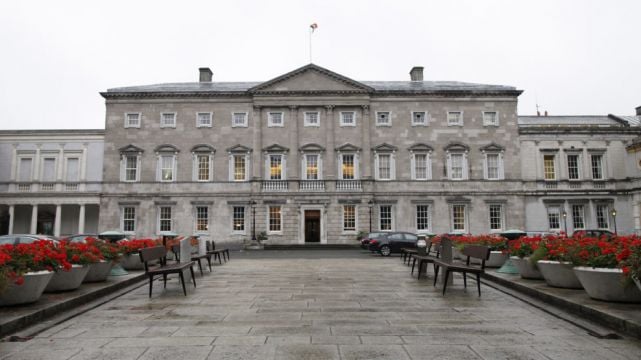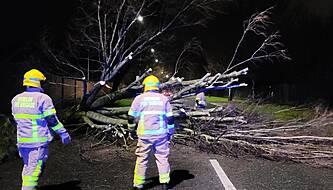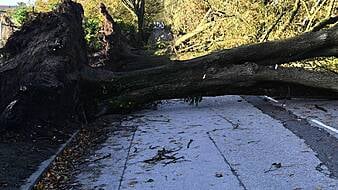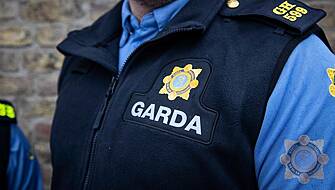The State's response to the alleged recruitment of an Oireachtas member as a Russian intelligence agent highlights a wider issue in terms of Ireland's intelligence, security and defence, according to a professor of international relations.
In an interview with BreakingNews.ie, UCD professor Ben Tonra said: "The fact that it happened is not surprising. All intelligence services are looking for sources, and those sources may be voluntary, they may be involuntary by virtue of subterfuge or active collusion, or using blackmail, honeypots, all the things we know from movies and TV shows.
"I think the anxiety is the lack of response and the way in which the State has responded to the allegations."
He said Tánaiste Micheál Martin's response to the allegations, which were revealed by The Sunday Times, failed to address Ireland's intelligence and security vulnerabilities.
"It was very peculiar to me that the Minister for Defence and Foreign Affairs, when he stood up in the Dáil to comment on these issues, he was not talking about the vulnerability of the State to this type of alleged espionage or intelligence gathering, he was criticising the fact this came out in the open.
"Rather than taking that approach, one would have liked a response that said 'listen, we're aware this is happening, we have systems, processes and institutions in place to address and deal with it, and this is how we're going to deal with it'. That was absent.
"That speaks to a wider failing on the part of the Irish State to take intelligence, security and defence in any way seriously."
Prof Tonra also said reports that then-taoiseach Leo Varadkar was not formally briefed on the allegations were worrying.
"One would have liked to have been reassured that people who needed to know had been briefed on it, that the situation was under constant surveillance and that the security services were made aware, and that didn't come across to me in the conversations surrounding it."
"That was off the charts strange. The idea that you would be informed but not briefed on something that involves national security."
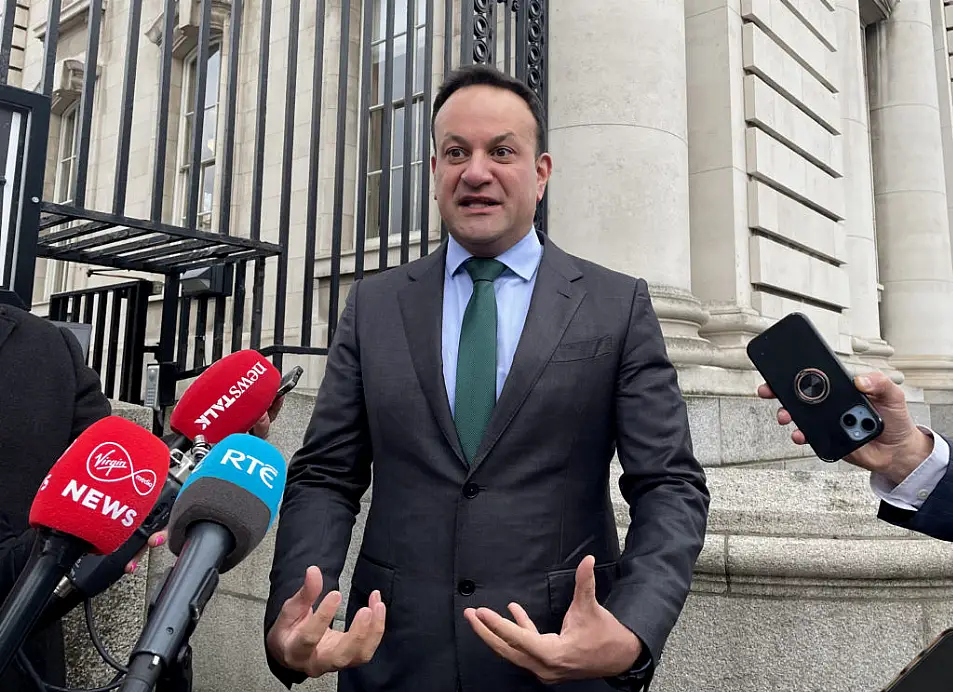
Mr Tonra said Ireland's lack of a national security clearance system is a big concern.
"There is no formal mechanism by which you are 'cleared' to access certain security information, and ways in which you might not be cleared. That too speaks to the fact that we have a very under-developed security culture, no real sense of the importance of national security, almost a naive, carefree attitude to national security issues. That is something the State is yet to address."
The upcoming general election could be a target for foreign actors looking to sow discord in European countries, Prof Tonra warned.
While it would not be as blatant as the likes of Moldova, where the public voted in favour of joining the EU despite Russian attempts to dissuade them from doing so, Prof Tonra said there are other forms of influence.
He cited the threats to elected officials and their families and attempts to stoke up violence as areas that could be targeted.
"Clearly, Russia's strategic interest is to destabilise democracies.
"In respect of the UK, that's a major adversary of Russia's. Their efforts to use social media, artificial intelligence, deepfakes and all the rest, to ferment political instability in Northern Ireland... targeting loyalist communities, republican communities, is clear and blindingly obvious.
"Here, we have the rise of the far-right. We can laugh at the National Party playing dress up in the Wicklow woods, it's all farcical, but there are seriously malevolent characters out there who have threatened government ministers, who have threatened taoisech's families, forced ministers to move out of their homes.
"We've had riots, we've had fire-bombings, we've had intimidation. These people need money, contacts, networks, and it is directly in Russia's strategic interest to promote that level of instability in a country which, clearly, they see as oppositional to their interests.
"It may be not so much as making people vote for one political party rather than another, but generally sowing instability, sowing dissension, undermining people's faith in the democratic process, that's all to the good as far as any malevolent international actor is concerned."
He said existing institutions like the National Cyber Security Centre are "not resourced properly".
While some people take comfort in the fact that far-right and extreme parties have not gained any significant electoral success in Ireland, Prof Tonra said this should not be a reason for complacency when it comes to security and those trying to cause civil unrest.
"We don't have a strong far-right party, but we have a lot of small far-right parties, a lot of factions and individuals. They haven't coalesced around a particular leader or programme, but they are not any longer an insubstantial part of the political spectrum.
"If you take together all these far-right parties, the few councillors elected, and some of the independent members of the Oireachtas who are flirting with some of these issues, using some of these issues, high profile people who ran for election last time out, there is a constituency there.
"The fact that they don't have a single leader, party or political programme is a blessing, but the forces are there, and they're open to manipulation. They're looking for resources, networks and allies.
"We have seen evidence of some international engagement with these individuals, and it's something that the State needs to take more seriously, and address more directly.
Bot accounts
"Look at the bot accounts, the themes that come up and are pushed. They are all designed to destabilise domestic politics, to promote extreme agendas and to push an agenda generally which is inimical to Ireland's democratic values and democratic accountability."
The Cobalt revelations about a possible Russian agent in the Oireachtas followed on from likely espionage in the Russian Embassy in Dublin, with the Government now refusing to issue new visas for additional diplomats at the embassy on Dublin's Orwell Road.
Prof Tonra also pointed to the Chinese 'police station' in the capital which was closed by gardaí.
The State response is reactive to a particular crisis or situation, but there is no underpinning strategy, infrastructure, culture of dealing with national security in a serious way.
"There's another big international power out there whose efforts to destabilise and gain influence have come to light. The infamous case of the Chinese police station that was opened. What all of this underlines is that the State will respond when presented with an urgent situation like the Chinese police station, like the Russians attempting to build a cyber centre in their embassy, and having 30 diplomats when they only need five or six to do the job.
"The State response is reactive to a particular crisis or situation, but there is no underpinning strategy, infrastructure, culture of dealing with national security in a serious way. That is an absence on the part of the State, and it's something that leaves us incredibly vulnerable.
HSE cyberattack
"We could see something like the HSE cyberattack happen again at several multipliers higher, or you could see an equivalent attack on Microsoft, Facebook, Twitter, or an attack on the IP infrastructure of one of the pharmaceutical companies.
"It comes down to taking security seriously, identifying what the threats are, identifying the necessary resources to deal with those threats and having the policy infrastructure in place to deal with them. None of those elements are properly in place as of yet."
Experts have expressed concern about how a second Donald Trump term could destabilise European security, particularly if he follows up on pledges to cut US financial support for Ukraine.
Prof Tonra said Ireland would also be vulnerable in this scenario.
Whatever happens, he feels security, intelligence and defence should be a priority for the next government.
